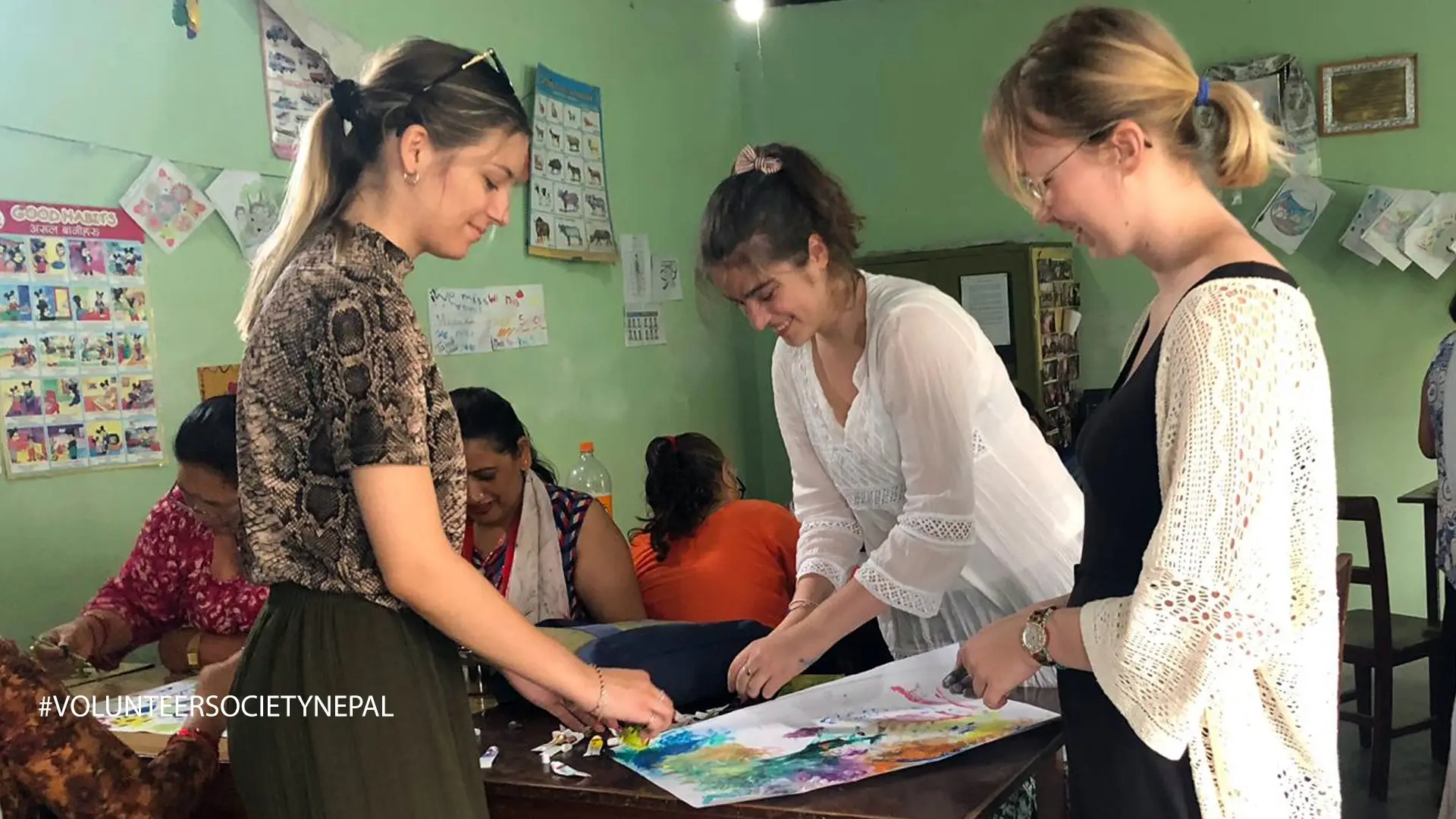Volunteer Opportunity
Volunteering for Women Empowerment Program in Nepal
Details
Benefits:
Participation:
Description

Volunteer Society Nepal understands that women empowerment is an important step towards empowering families and communities, so our education program works to teach languages, mathematics, and practical skills to women in Kathmandu. Due to a lack of awareness and access to quality education in Nepal, gender discrimination is a major problem that is fueled by long-held superstitious beliefs and political leaders’ decreased political vision. The socio-economic status of women in Nepal is very poor; women are discriminated against in every aspect of society including health, education, participation, income generation, decision-making, access to policymaking, and human rights. While the general health of Nepalese people is one of the lowest in Asia, it is particularly bad for women; Nepal is one of the few countries in the world where life expectancy for women is lower than for men. One-fifth of women get married at the early ages of 15-19, and as a result of youth pregnancy and premature births, the rate of women dying preventable deaths is very high. All of these statistics: the high birth rates, low life expectancy, and high infant and maternal mortality rates indicate the poor health status of women. There are very few women working in professional fields in Nepal. They may study law, but few are able to enter the profession. Women’s representation in the bureaucracy is also very low. Women serve as decision-makers in crop management, domestic expenditure (food items, clothes and other expenses), their children’s education, religious and social travel, and household maintenance but beyond this women’s decision-making roles seem to have declined in recent years.
In Nepal, violence against women is rampant. Research projects in Nepal concluded that 66 per cent of women have endured verbal abuse and 33 per cent emotional abuse, while 77 per cent of the perpetrators were family members (UNICEF 2001).Traditionally the status of women in Nepal was determined by the patriarchal social system and values, but now women’s rights are preserved and protected by the state and specific policies for the development of women. The government and other civil society groups are working hard to combat this issue, but there is still plenty of work to be done to effectively end violence against women.
What does women empowerment do?
Educate the Women:
We think that we can make a difference in improving women’s literacy rates in Nepal. Volunteer Society Nepal has been providing regular literacy classes to more than 30 women on a regular basis, many of whom have never seen formal education in their lives. VSN provides basic reading and writing classes in English and Nepali, as well as mathematics for simple accounting purposes. National statistics show the sad fact that the women’s literacy rate in Nepal is only 30 per cent while male literacy has reached 66 per cent. The enrollment of women in higher education is only 24.95 per cent, and women’s involvement in technical and vocational education is also lower than men. These statistics are due to the social norms and culture that we follow, such as the idea in rural areas that girls are “paraya dhan” (others’ property) and therefore aren’t given the opportunity for education.
Volunteer Society Nepal understands that women empowerment is an important step towards empowering families and communities, so our education program works to teach languages, mathematics, and practical skills to women in Kathmandu. Due to a lack of awareness and access to quality education in Nepal, gender discrimination is a major problem that is fueled by long-held superstitious beliefs and political leaders’ decreased political vision. The socio-economic status of women in Nepal is very poor; women are discriminated against in every aspect of society including health, education, participation, income generation, decision-making, access to policymaking, and human rights. While the general health of Nepalese people is one of the lowest in Asia, it is particularly bad for women; Nepal is one of the few countries in the world where life expectancy for women is lower than for men. One-fifth of women get married at the early ages of 15-19, and as a result…
Location
Kathmandu


